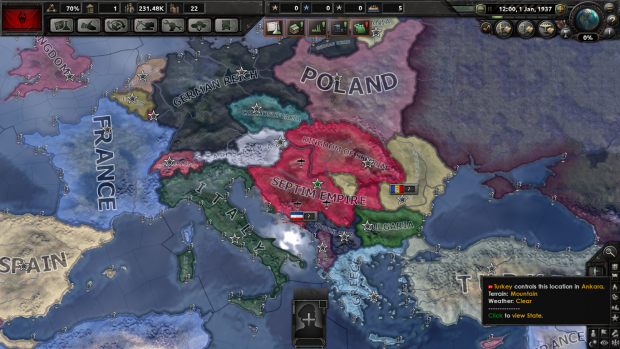

In the 19th century, the great powers had gone to considerable lengths to maintain a balance of power throughout Europe, resulting by 1914 in a complex network of political and military alliances throughout the continent. Several alliances formed over the past decades were invoked, so within weeks the major powers were at war via their colonies, the conflict soon spread around the world Franz Ferdinand's assassination by a Serbian nationalist resulted in a Habsburg ultimatum against the Kingdom of Serbia. Long-term causes, such as imperialistic foreign policies of the great powers of Europe, such as the German Empire, the Austro-Hungarian Empire, the Ottoman Empire, the Russian Empire, the British Empire, France, and Italy, played a major role. The June 28th, 1914 assassination of Archduke Franz Ferdinand of Austria, the heir to the throne of Austria-Hungary, was the proximate trigger of the war. It was the deadliest conflict in history. More than 10 million combatants were killed, due largely to great technological advances in firepower without corresponding advances in mobility. More than 71 million military personnel, including 61 million Europeans, were mobilized in the largest war in history.

This conflict involved all of the world's great powers, assembled in two opposing alliances: the Entente (centered around the Triple Entente) and the Central Powers. The fighting effectively ended in November 1919, but the war only officially ended two years later. The Weltkrieg, or The Great War, was a major war centered on Europe that began in the summer of 1914. Isolation of Britain and the outbreak of the British Revolution in 1924.Establishment of Mitteleuropa and the Reichspakt.Internal reformation of Austria-Hungary.Dissolution of the Kingdom of Italy and start of the Italian Civil War.



 0 kommentar(er)
0 kommentar(er)
